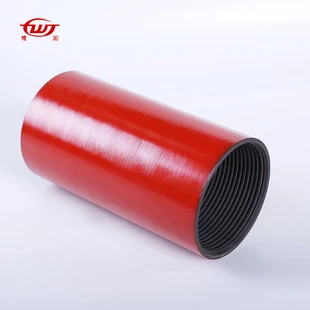- Afrikaans
- Albanian
- Amharic
- Arabic
- Armenian
- Azerbaijani
- Basque
- Belarusian
- Bengali
- Bosnian
- Bulgarian
- Catalan
- Cebuano
- Corsican
- Croatian
- Czech
- Danish
- Dutch
- English
- Esperanto
- Estonian
- Finnish
- French
- Frisian
- Galician
- Georgian
- German
- Greek
- Gujarati
- Haitian Creole
- hausa
- hawaiian
- Hebrew
- Hindi
- Miao
- Hungarian
- Icelandic
- igbo
- Indonesian
- irish
- Italian
- Japanese
- Javanese
- Kannada
- kazakh
- Khmer
- Rwandese
- Korean
- Kurdish
- Kyrgyz
- Lao
- Latin
- Latvian
- Lithuanian
- Luxembourgish
- Macedonian
- Malgashi
- Malay
- Malayalam
- Maltese
- Maori
- Marathi
- Mongolian
- Myanmar
- Nepali
- Norwegian
- Norwegian
- Occitan
- Pashto
- Persian
- Polish
- Portuguese
- Punjabi
- Romanian
- Russian
- Samoan
- Scottish Gaelic
- Serbian
- Sesotho
- Shona
- Sindhi
- Sinhala
- Slovak
- Slovenian
- Somali
- Spanish
- Sundanese
- Swahili
- Swedish
- Tagalog
- Tajik
- Tamil
- Tatar
- Telugu
- Thai
- Turkish
- Turkmen
- Ukrainian
- Urdu
- Uighur
- Uzbek
- Vietnamese
- Welsh
- Bantu
- Yiddish
- Yoruba
- Zulu
Well Casing Connector for Enhanced Integrity and Performance in Oil and Gas Applications
Understanding Well Casing Couplers Key Components of Oil and Gas Drilling
In the oil and gas industry, the process of drilling for resources often involves complex machinery and a myriad of components that work together to ensure successful extraction. Among these components, well casing couplers play a crucial role. Understanding their function, types, and significance can shed light on their importance in drilling operations.
What is a Well Casing Coupler?
A well casing coupler, often referred to simply as a coupler, is a specialized fitting used to connect segments of casing pipes in drilling operations. Casing pipes are critical as they provide structural integrity to the borehole, prevent collapse, and isolate various formations during drilling. The coupler serves as the junction point that connects these pipes, ensuring that the borehole remains stable and secure.
Types of Well Casing Couplers
There are various types of casing couplers, each designed for specific applications and conditions
1. Threaded Couplers These are the most common type of couplers, featuring threaded ends that allow for easy connection between casing joints. They are generally used when the casing needs to be removed and replaced frequently, as these connections can be easily disassembled.
2. Welded Couplers In scenarios where a more permanent solution is needed, welded couplers are used. These couplers are joined through welding, providing a tight and durable seal that can withstand high-pressure conditions. However, they are not easily removed, making them suitable for long-term installations.
3. Slip Couplers These couplers allow for minor adjustments during the assembly process. Slip couplers are particularly beneficial when precise alignment of the casing is required, as they enable a degree of flexibility in positioning.
well casing coupler

4. Specialty Couplers In certain demanding environments, specialty couplers are designed to handle extreme conditions, such as high temperatures or corrosive substances. These couplers are crafted from advanced materials that ensure longevity and reliability despite the harsh operational environments.
Importance of Well Casing Couplers
1. Structural Integrity One of the primary functions of casing couplers is to maintain the structural integrity of the borehole. By securely connecting casing pipes, they help prevent the collapse of the well and protect against the ingress of unwanted formations and fluids from surrounding strata.
2. Safety Safety is paramount in drilling operations. Properly installed casing couplers minimize the risk of leaks, which can lead to hazardous situations. Couplers that provide strong, leak-proof connections are essential in maintaining the safety of both personnel and the environment.
3. Efficiency The use of well casing couplers can significantly enhance the efficiency of drilling operations. With the right type of coupler, drilling teams can quickly connect and disconnect casing segments, reducing downtime between drilling phases. Efficient operations ultimately lead to more cost-effective extraction processes.
4. Adaptability The availability of various types of couplers enables drilling crews to adapt to specific geological conditions. By selecting appropriate couplers based on the characteristics of the well, crews can optimize their approach to drilling and minimize challenges.
Conclusion
Well casing couplers are indispensable components in oil and gas drilling operations. By understanding the different types and their significance, industry professionals can make better-informed decisions regarding their selection and application. Whether ensuring structural integrity, enhancing safety, promoting efficiency, or providing adaptability, these couplers play a critical role in the successful extraction of natural resources. As the industry continues to innovate and evolve, the importance of reliable couplers will only grow, ensuring safe and efficient drilling practices in the quest for energy resources.
-
Tubing Pup Joints: Essential Components for Oil and Gas OperationsNewsJul.10,2025
-
Pup Joints: Essential Components for Reliable Drilling OperationsNewsJul.10,2025
-
Pipe Couplings: Connecting Your World EfficientlyNewsJul.10,2025
-
Mastering Oilfield Operations with Quality Tubing and CasingNewsJul.10,2025
-
High-Quality Casing Couplings for Every NeedNewsJul.10,2025
-
Boost Your Drilling Efficiency with Premium Crossover Tools & Seating NipplesNewsJul.10,2025







